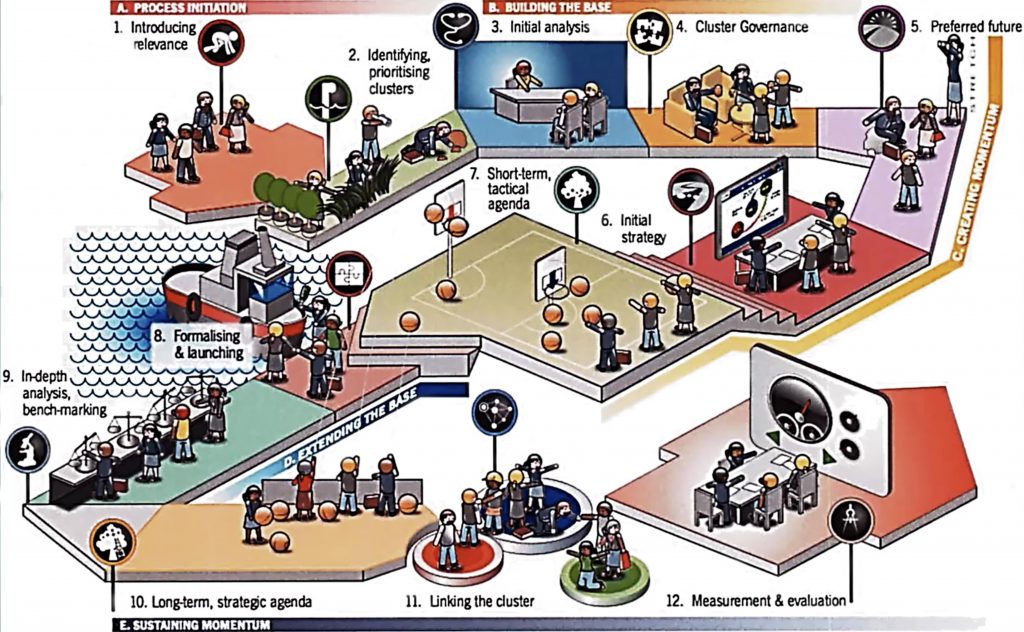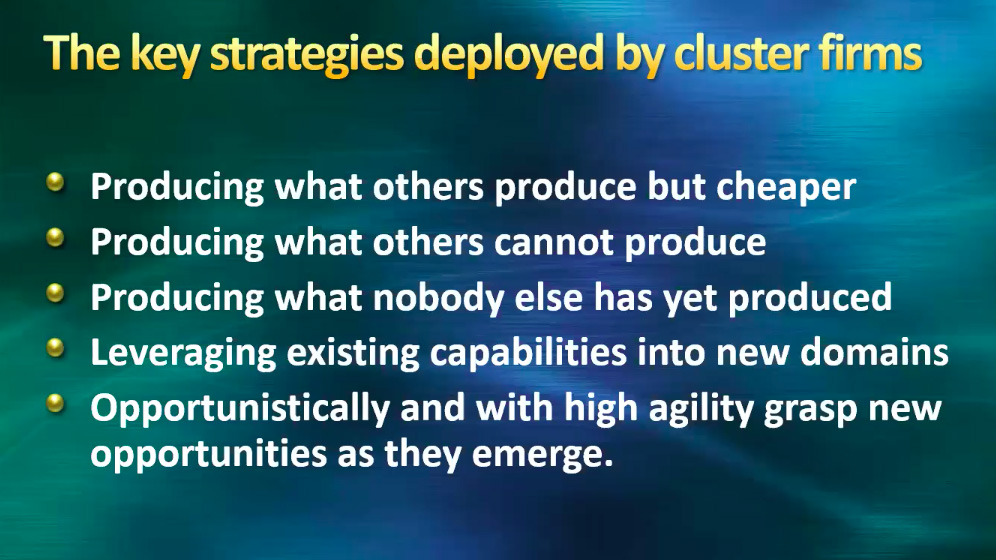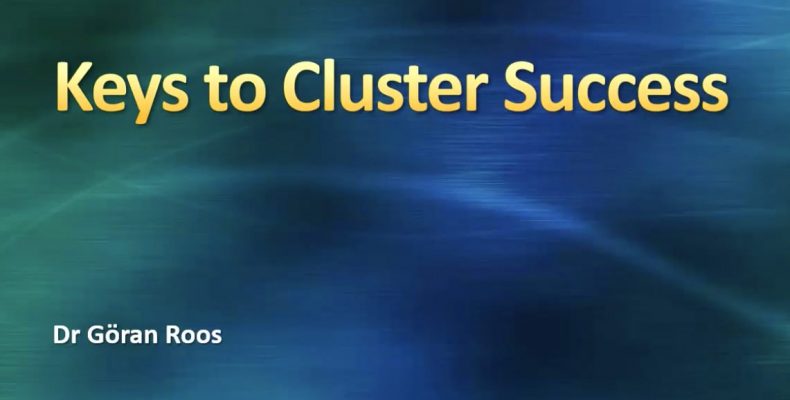AFCG Members were treated to a Zoom seminar this week featuring Swedish academic Göran Roos, who revealed how thousands of innovation Clusters in Europe promote proven success for their members.
Professor Roos, a technologist and businessman recognised as a world expert in innovation management and strategy, says the value of Clusters lies in trust being engendered through close cooperation and informal contact.
“Working in clusters means that you tend to do better, in places where people inherently trust each other … people do well.”
– Professor Göran Roos
Leveraging existing capabilities into new domains is easier for firms within a Cluster than outside, Professor Roos says, as the collective covers many domains and better understands demand.
“That tends to works better inside Clusters,” he says. “Clusters can collate and thereby become better at finding direction. As a Cluster, approaching a third party is more powerful than approaching them as an individual firm to drive changes.”

The process of how a cluster develops.
Professor Roos, who is currently in the UK, delivered a tailored workshop for Advanced Fibre Cluster members on Monday. He gave a detailed review of what Clusters are and why they are beneficial to firms and regions, outlined the characteristics of strong and weak Clusters and the challenges they face, and revealed the latest knowledge around how innovation occurs and adds value in business.
Clusters were defined as geographic concentrations of interconnected companies and institutions in a particular field which tend to include some suppliers of specialised inputs for components, machinery, and services. There are almost 3,000 in Europe.
While in Australia there is a perception that government support for Clusters is “picking winners,” elsewhere the economic benefits of agglomeration are well recognised.
“The understanding of the benefits of Clusters are very well developed in Europe generally, in the US in the aerospace and defence and bio tech domains, and in Asia in some areas, in (South) Korea for example,” Professor Roos says.
“Organisations strive for these benefits and they end up in city structures. That is why cities grew, to get these type of benefits.”
– Professor Göran Roos
The role of government is to create an environment in which winners can emerge, he says, and the best way forward is to show the economic spillover effects that can be generated as a Cluster.
“That is the critical aspect.”

Top five strategies for business success.
Professor Roos also encourages the development of a network beyond the geographical Cluster itself, though he says there are certain benefits you cannot get from a network that you can get from your Clustering due to proximity.
“The way I would look at it is you have a core, which I would call the Cluster, and then you have an extended network, of which the Cluster is part. You will get different benefits from these things.
“I wouldn’t look at them as separate things, I would look at them as one thing, but [the data suggests] they glide into an issue with benefits depending on how far away they are.”
Professor Roos previously shared a ground-breaking business improvement program in Geelong back in 2015 and said it was “very pleasing to see how far many of your companies have moved after these last five years.”
“I think that it is great and I wish you continued success in your activities and look forward to seeing where you end up,” he told AFCG members.
Watch this space as we make progress as a group and as individual firms within the Cluster against the major “Keys to Cluster Success” factors identified by Professor Roos.
Oct 2020
